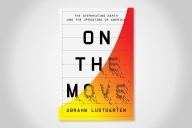You have /5 articles left.
Sign up for a free account or log in.
Twitter is a fabulous platform for our #ELI2015 community. Or maybe #ELI2015 is the community. I’m having trouble separating the virtual network of tweeters from the physical network of people here in Anaheim. Or maybe it is not necessary to all be in one place at one time to build our ELI community, as those attending virtually have just as much access to the Twitter conversation as those of us in California.
Twitter seems to give voice to many more of our ELI participants than those with an “official” voice at the Conference. Pre-Twitter the conversation was one-to-many (presenter-to-audience). Now the conversation is public and egalitarian. Twitter is blind to job title, role, and status. The newest ELI attendee can share the most penetrating of insights.
What happens when our understanding of an event is driven by posts in a Twitter stream?
The upsides to the instant sharing of thoughts, reactions, and takeaways across a community seem beyond dispute. When people tweet they are making meaning of what they are witnessing. When we read other people’s tweets we are seeing the world as it shows up for them, taking in their thoughts to help us make sense of what we are experiencing.
Are there downsides of Twitter becoming the glue of an event like #ELI2015?
Some may worry that in privileging immediacy and brevity (140 characters), we run the risk of losing reflection and deep thinking. I don’t share this worry, as my colleagues at ELI who are the most passionate and productive Twitter gurus turn out to be amazingly thoughtful in (face-to-face) conversation. Twitter seems to be generative of reflection, not inhibitory.
Nor have I witnessed communications on Twitter stand in the way of the development of strong personal networks amongst the ELI community. Quite the opposite, as Twitter relationships seem to easily transition to personal relationships. Colleagues who interact on Twitter seem likely to get together for coffee or dinner if given half a chance.
So how to make meaning of Twitter at #ELI2015?
How can someone like me, who does not tweet, make sense of the dominance of Twitter as the language of this ELI community?
Are we handicapping ourselves and diminishing the value of attending a conference like ELI if we are not tweeting? Or worse, are we free riding on everyone else's tweets - taking from the conversation without contributing to the dialogue?
Has Twitter become so ingrained in the fabric of a meeting like #ELI2015 that we no longer think about how it changes our community?
Can we find a language that moves beyond thinking of a platform like Twitter as “good” or “bad” for our community, to one that tries to make sense of how the technology changes and influences how we interact and make meaning of those interactions?
How far are we away from exporting the conference Twitter lingua franca to the idea exchanges of our campuses?
Would we ever consider an experiment where we went Twitter silent for an afternoon at ELI?
How do you make sense of Twitter at #ELI2015?

Want articles like this sent straight to your inbox?
Subscribe to a Newsletter







